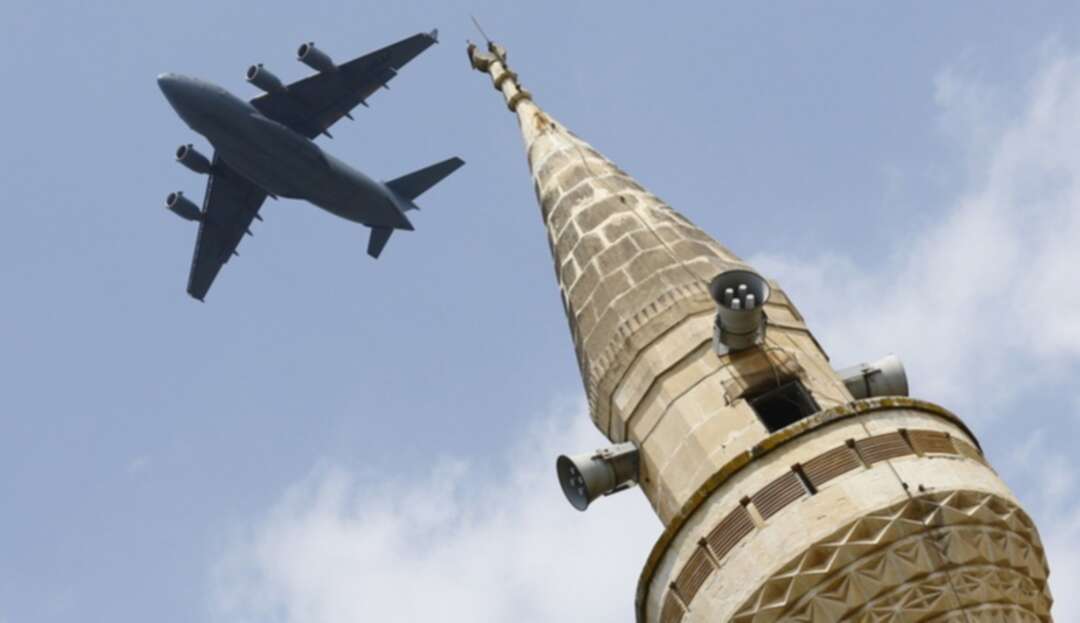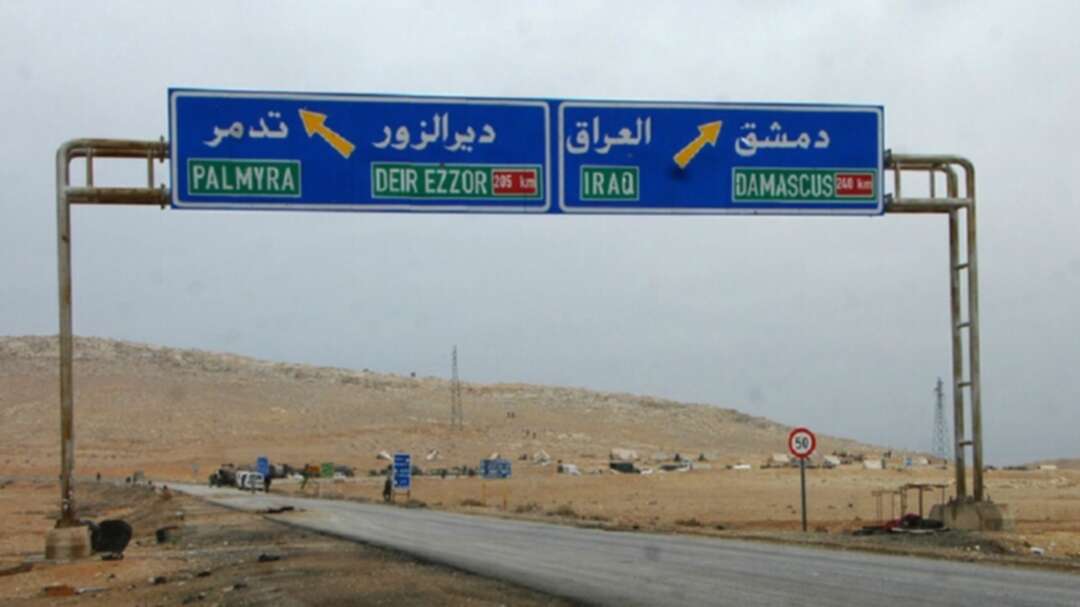-
US-Turkey relations at critical crossroads: what’s behind Erdogan’s threat to shutter Incirlik Air Base?

When Turkish President Recep Tayyip Erdogan threatened to close a vital airbase used by American forces, he wasn’t bluffing, and Washington should take his threats at face value, or risk losing a NATO ally, analysts say.
The Turkish leader announced on Sunday that Incirlik Air Base - a vital hub for US and NATO forces stationed in the Middle East - could close its doors if US lawmakers press ahead with sanctioning Turkey for its acquisition of the Russian-made S-400 air defense system.
Incirlik is not a backwater airstrip, the kind the United States utilizes for its drone missions in Africa, for example. Instead, it’s a massive base in Adana, a city of 1.7 million people. Here, just 250km from the Syrian border, nearly 5,000 US airmen are stationed, as well as several hundred Turkish airmen. More than 50 hardened aircraft shelters hide American jets, while the base also hosts an estimated 50 American nukes.
Erdogan has also threatened to close the Kurecik Radar Station, an isolated facility on a scorched hill in southeastern Turkey that performs a vital function as an early warning against ballistic missile attacks.
His threats are serious ones, but not unexpected. Rather they’re the latest round in an ongoing match of diplomatic swordplay between Washington and Ankara. For the US, the stakes in this game are high. If Congress pushes ahead with its vendetta against Ankara, the US risks burning its bridges with its NATO ally and pushing Erdogan closer to regional players like Russia and Iran.
Don’t test Erdogan
Whatever course Washington ultimately decides upon, it would be unwise to assume that the Turkish strongman is simply bluffing, Yusuf Erim, a political analyst at TRT World, told RT.
He stressed that such an extreme measure would only be seriously considered as a reaction to new policies or legislation imposed by Washington. However, if sanctions are imposed, it could trigger a “snowball” effect, sending US-Turkey relations into a nosedive.
Erdogan's previous decisions have shown he can be taken at his word. The Turkish president earned the scorn of his NATO allies for pressing ahead with the S-400 deal and defied Washington’s threats to take delivery of the Russian missiles in July. That delivery saw Turkey booted out of the F-35 fighter jet program, but not even expulsion from the F-35 project, nor a face-to-face meeting with President Donald Trump last month, could convince Erdogan to reverse course.
As well as clashing with Erdogan over Russian missiles and far-flung airbases, Washington is at odds with itself over how to handle the wily Turkish leader.
Apart from considering sanctions targeting Ankara’s purchase of S-400 systems, the US Senate passed a resolution on Thursday recognizing the Armenian Genocide, ethnic cleansing purportedly carried out in the early 20th century by Ottoman Turkey which killed roughly 1.5 million people. Ankara’s official position is that the genocide never took place, and any deaths took place as part of the first world war. The move has further enraged Erdogan, who has hinted at a resolution of his own – which would recognize the genocide of indigenous people in the United States.
These measures were passed without the input of President Trump, who has adopted a more convivial attitude toward Ankara. “I like Turkey,” he said at a NATO summit earlier this month. “And I get along very well with the president. He is a very good member of NATO, or will be.”
Hüseyin Bağci, Professor and Chair of the International Relations department at the Middle East Technical University in Ankara, noted that Turkey has received mixed signals from Washington, exacerbating already-strained bilateral relations.
While the tone coming from Washington could be described as mixed, all parties involved clearly understand that “losing” Turkey would not be in America’s best interests, Bağci said. Yet even Trump’s allies in the Republican party signed on to both the genocide resolution and the sanctions bill. Unless Washington can get its story straight, and Congress take a new line, losing Turkey may become a reality.
Ankara’s delicate balancing act
The game of chicken between Washington and Ankara highlights the wildly fluctuating relationship between the two countries, according to Valeria Giannotta, an Italian academic at the University of Turkish Aeronautical Association in Ankara.
“The arm wrestling with Washington is not something new, we have been witnessing this up and down in the bilateral relations for quite a long time,” Giannotta told RT, citing US support for the Syrian Kurds, as well as the Obama administration’s refusal to hand over Erdogan’s arch-enemy, Fetullah Gülen.
Even if US troops remain in Incirlik, the two countries seem to be drifting apart on key foreign policy issues. Ankara shares a special relationship with Iran, for example, and views the Islamic Republic as an economic partner – a position that flies in the face of Washington’s unilateral sanctions and calls for regime change.
After inking the S-400 deal with Moscow, Turkey now sees that pursuing its interests – while trying to appease Washington – may no longer be possible. If the United States isn’t careful, its showdown with Erdogan could end up fracturing a decades-old alliance.
source: Reuters
You May Also Like
Popular Posts
Caricature
BENEFIT Sponsors BuildHer...
- April 23, 2025
BENEFIT, the Kingdom’s innovator and leading company in Fintech and electronic financial transactions service, has sponsored the BuildHer CityHack 2025 Hackathon, a two-day event spearheaded by the College of Engineering and Technology at the Royal University for Women (RUW).
Aimed at secondary school students, the event brought together a distinguished group of academic professionals and technology experts to mentor and inspire young participants.
More than 100 high school students from across the Kingdom of Bahrain took part in the hackathon, which featured an intensive programme of training workshops and hands-on sessions. These activities were tailored to enhance participants’ critical thinking, collaborative problem-solving, and team-building capabilities, while also encouraging the development of practical and sustainable solutions to contemporary challenges using modern technological tools.
BENEFIT’s Chief Executive Mr. Abdulwahed AlJanahi, commented: “Our support for this educational hackathon reflects our long-term strategic vision to nurture the talents of emerging national youth and empower the next generation of accomplished female leaders in technology. By fostering creativity and innovation, we aim to contribute meaningfully to Bahrain’s comprehensive development goals and align with the aspirations outlined in the Kingdom’s Vision 2030—an ambition in which BENEFIT plays a central role.”
Professor Riyadh Yousif Hamzah, President of the Royal University for Women, commented: “This initiative reflects our commitment to advancing women in STEM fields. We're cultivating a generation of creative, solution-driven female leaders who will drive national development. Our partnership with BENEFIT exemplifies the powerful synergy between academia and private sector in supporting educational innovation.”
Hanan Abdulla Hasan, Senior Manager, PR & Communication at BENEFIT, said: “We are honoured to collaborate with RUW in supporting this remarkable technology-focused event. It highlights our commitment to social responsibility, and our ongoing efforts to enhance the digital and innovation capabilities of young Bahraini women and foster their ability to harness technological tools in the service of a smarter, more sustainable future.”
For his part, Dr. Humam ElAgha, Acting Dean of the College of Engineering and Technology at the University, said: “BuildHer CityHack 2025 embodies our hands-on approach to education. By tackling real-world problems through creative thinking and sustainable solutions, we're preparing women to thrive in the knowledge economy – a cornerstone of the University's vision.”
opinion
Report
ads
Newsletter
Subscribe to our mailing list to get the new updates!





















